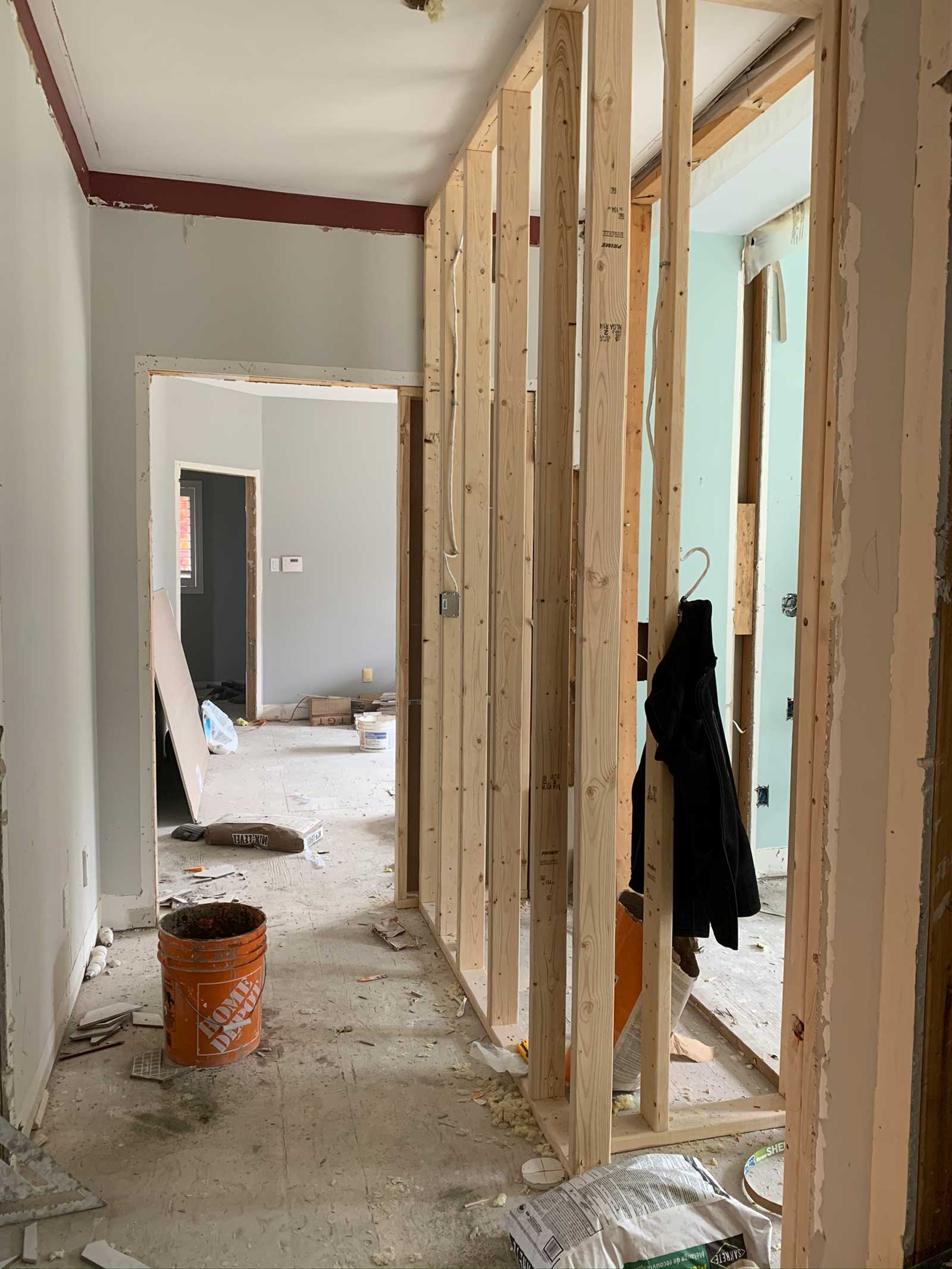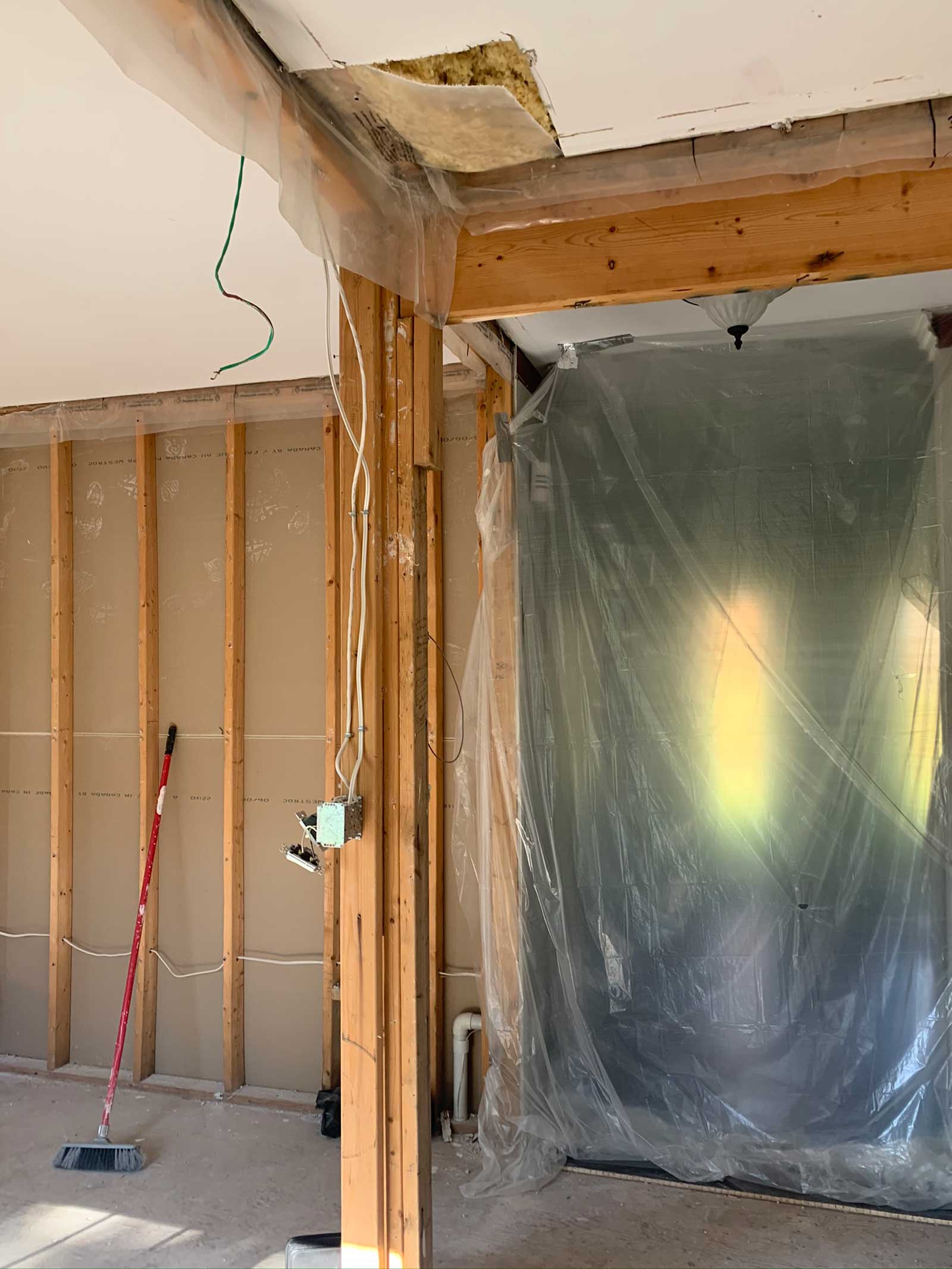A design concept is only as good as the contractor that executes it. As designers, we incorporate a lot of custom elements and details into a space. In order for these elements to come to life and bring the design to fruition, the contractor needs to know what they are doing.
One of the most important things whether it is a commercial space or a home, is to select the right contractor for the job. Some contractors will specialize in one or the other, and others will do both. The first step is to narrow down your prospects based on their portfolio and reviews. Once you have a few potential contractors we recommend following some of our tips below to help finalize the decision.

Price is too good to be true
The cheapest quote is not always the best one, here is why. When we quote for a project, we typically get a minimum of three contractors to quote, the reason being it allows us to see who may be too high or who may be too low. We have found three main reasons why a quote could be significantly less than others; the contractor didn’t really look through the plans and go through all the details, they are unqualified and unlicensed, or they are purposely low balling the quote to win the project.
RED flag #1 If you get the impression that the contractor can’t read or understand the drawings, then it is a very good chance they can’t. This becomes an issue because your initial price that looked good will end up being more, most likely bringing you closer to the other quotes that were provided. Sometimes even more.
RED flag #2 Unlicensed and unqualified contractors may take advantage of unsuspecting homeowners by giving them the impression that they are getting a great deal.
RED flag #3 They purposely low ball the quote just to win the project and once they are hired, everything becomes an extra cost because it wasn’t ‘indicated on the plans’ or ‘included into the contract’. Which bring me to our next tip, undetailed contracts.
Undetailed Contracts
I don’t know how many times contractors try to play a fast one on a client, thinking they will not know any better because they can’t read the design plans. There have been times when a contractor said a certain detail was not in the drawings and we would have to point out that they are in order to avoid increase in cost. This is why, that initial contract is extremely important.
RED flag #4 A contract is legally binding and once it’s signed, you’re stuck with it. If you receive a vague contract, DON’T SIGN IT! One of the biggest and most detrimental mistakes a homeowner can make when hiring a contractor is failing to get everything in writing. As designers, we are the only ones that really understand every element and design detail there is, which is why we always look over the contract for our clients to insure nothing is missing. If it is not indicated on the contract, be aware you will be paying for it later and it is not included in the price of the contract. Don’t just trust ‘yes, don’t worry it is included’ verbal promises.
Yes, Yes, Yes!
Be aware of the ‘yes contractor’! You know that one that says yes to being able to do absolutely everything you ask them, and then when it comes down to doing it they can’t.
RED flag #5 If they say yes to everything but can’t give an exact answer to a specific question, they may not know how to do it. Be specific when asking a question and get them to explain how they will execute it. If they know how to explain it, they know how to execute it. There are a few major design elements that are extremely important for contractors to know how to do properly, for instance seamless showers. If the design calls for a seamless shower get the contractor to explain to you how they will do it. If they don’t know how and it is done incorrectly, they will have to rip out everything and start over, which is money and time lost.

Insured and Licensed Employees
As a homeowner, one of the first things you should ask is if the contract or whom they subcontract to is insured and licensed.
RED flag #6 If the contractor and each subcontractor is not insured or licensed, walk away, especially on a large project. The homeowner can be liable if any injury occurs during the project. Insured contractors are liable for all those they hire or bring to the job site. This will also protect you should the contractor fail to pay the subcontractors, and demand more payment from you. Licensing laws are designed to protect property owners from negligent or dishonest contractors.
Payment Breakdown/Down payments
It is standard practice to pay for a percentage of a project before it begins. Ultimately, it depends on the job and what’s involved, but typically a contractor shouldn’t ask for more than 10% as a deposit or retainer. By establishing a payment plan in which payments are made as the project is completed, you will avoid the risk of the contractor using your down payment to finance another project, or worse, skip out on the project altogether and take your money.
RED flag #7 A contractor asking to pay for more than half of the project at the start is a huge red flag. Likewise, a contractor who insists on receiving all payments in cash can be suspicious; a client should have the options to pay through various methods. A deposit or retainer really is a security measure for the contractor; it shouldn’t be used as a payment.
Construction project timeline
Before the start of any project a good contractor will provide you with a detailed timeline construction timeline. As a side note, timelines always change once construction starts but they are there to keep everyone organized, on track, and in the loop.
RED flag #7 The contractor does not provide a detailed construction project timeline. If you are not given a timeline, chances are your contractor is not organized and hasn’t taken on a large project before. This can become a huge problem when your project that should have taken 3 months takes 6 months.
Milton Bungalow Onsite Construction Milton Bungalow Onsite Construction
Now I just want to conclude by saying that there are a lot of great contractors out there, so we don’t want this article to scare you away from renovations. We really wouldn’t be able to do our job without the many great ones out there. It is merely to take our experiences and shed light on what you should be looking for, and more importantly, what you should avoid. At the end of the day, the right team will determine whether your project runs smoothly from start to finish.
If you have any contractor experiences good or bad we would love to hear from you. Write us a comment below.






Leave a Reply
You must be logged in to post a comment.